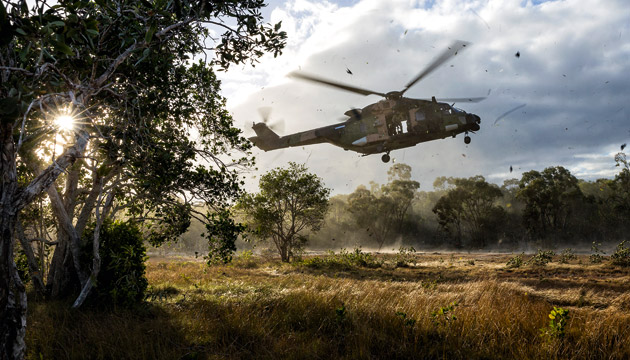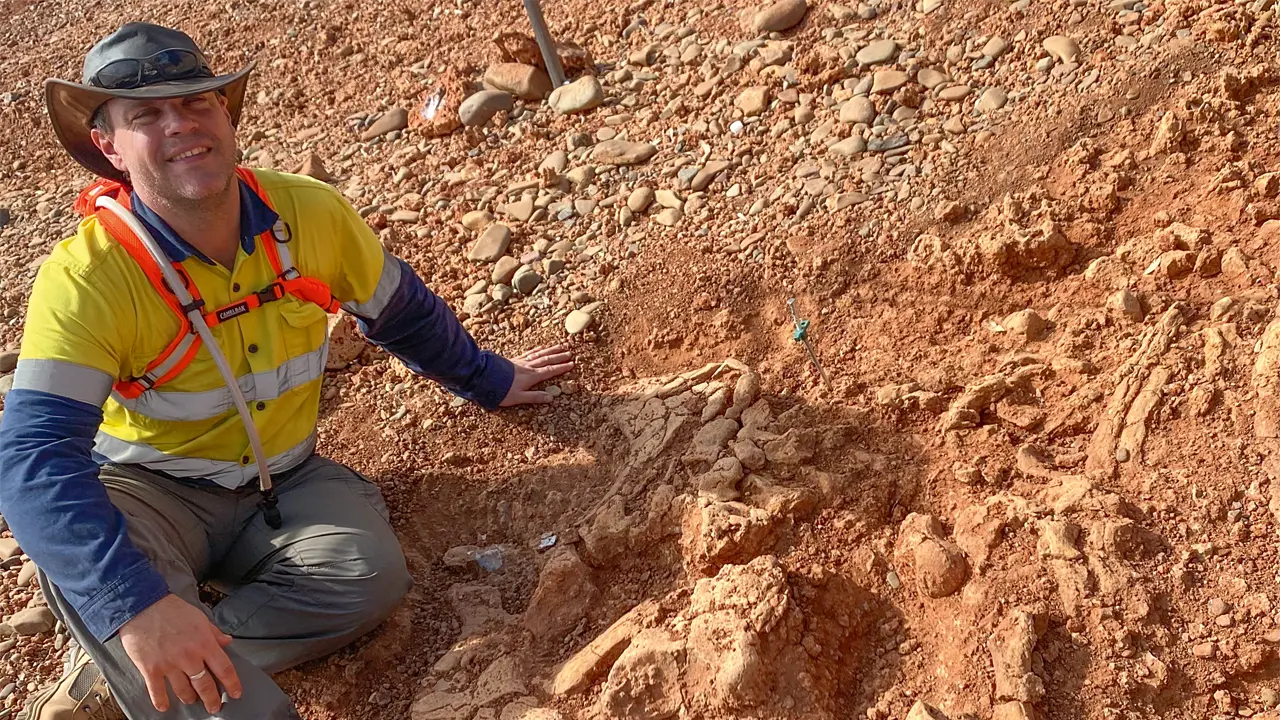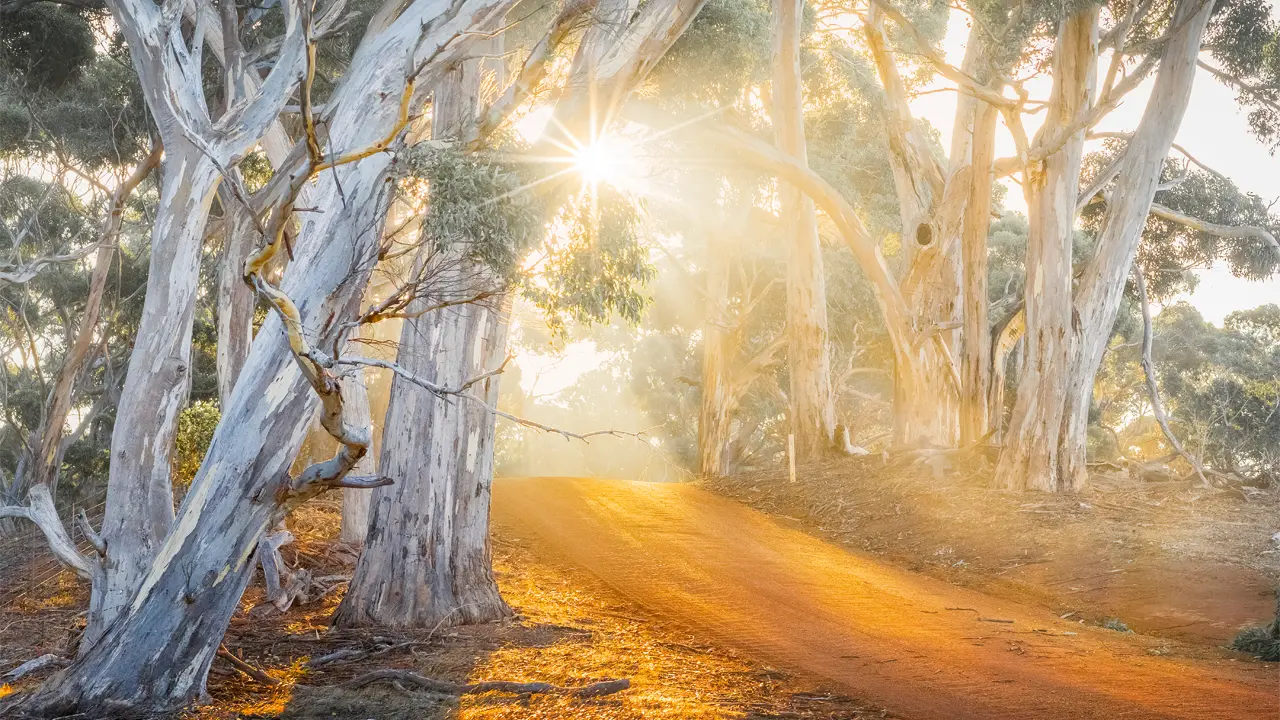Australia is one of the world’s biggest spenders on defence. Since the Boer War, rural people and places have been a vital part of this protective umbrella.
Story Ken Eastwood Photo Jake Badior
Spent cartridges ricochet off concrete and the air is filled with the pounding of Austeyr EF88 assault rifles. Spread-eagled across the ground, 10 men from the Australian Army’s 51st Battalion, Far North Queensland Regiment, unleash their firepower
towards the flanks of Mt Stuart, just outside Townsville.
Several hundred metres away to the right, a heavy calibre weapon opens up, its dull thuds seeming to rock the ground. And behind, Blackhawk helicopters – recently returned to Townsville from Sydney – are flying low, adding to the cacophony.
Then, suddenly, it all goes quiet.
The kangaroos that had been grazing, unfazed, on the range fringe had wandered out to the middle of the target area. And even though most of the men on the ground are keen hunters and providers in their communities, they are under instructions not to shoot the roos. So they take a break, studying the electronic scanners that show exactly where their bullets struck, some 300 metres away.
Warrant Officer Andrew ‘Dusty’ Miller is in charge of this week of training new patrolmen. A kind-hearted, ruddy bloke who has seen things in conflict situations he’d rather forget (he received Australia’s first Medal for Gallantry since the Vietnam War for his peace-keeping role during Rwanda’s awful Kibeho Massacre in 1995, and his cook was killed during a traitorous attack in Afghanistan), Dusty is aware that 51st Division is particularly special. He’ll yell at the men for disobeying instructions or not caring for their weapons, but then speak in a kinder and gentler voice, encouraging, guiding, mentoring. Apart from a few senior personnel, the whole division is made up of reservists from remote areas and Aboriginal communities. The Army’s usual education requirements, and even some criminal history, can be overlooked if a person wants to serve their country and improve themselves in the 51st. Dusty says the Army gains personnel with excellent skills and huge knowledge of the region they are patrolling, and the reservists gain regular, tax-free income from working up to 120 days a year, as well as personal skills and pride.
“Some of them don’t have the discipline and confidence in themselves, and that’s one of the things we try to nurture and bring out,” Dusty says. “All they need is a little bit of guidance and positive reassurance. Even with the language barrier – and some of these guys, their second or third language is English – they have skills that fit into the Army. They have bush survival skills we can’t teach. These guys can track really well. Across Army we don’t get to that level that these guys are at.”
Tyrone Doomadgee, 26, one of four new recruits from Doomadgee, Qld, says his family is proud that he signed up to the 51st. “They say, ‘That’s a good thing you’re doing’,” he says. “When you wear the green skin, it’s not just making your country proud, it’s making your community proud. People see the change in you and are really interested in you.” Tyrone says when he goes back to Doomadgee he encourages people to get away from alcohol and bad influences, and even to join him in the Reserves. “When I went home, my home didn’t feel like home. But in the Army I felt more comfortable,” he says.
Daniel Clark, one of eight recruits from Bamaga, near the tip of Cape York, agrees, and says he is contemplating moving across to the regular Army. “For me, I wanted to set an example for the younger fellas in my community instead of wandering around smoking and drinking,” he says.
Across the Defence Force are some 60,000 personnel – approximately 30,000 in the Army and 15,000 each in the Air Force and Navy. About 5400 new recruits need to be found each year to maintain numbers. They’re based across the country, from Tasmania to the Cocos (Keeling) Islands, with our three Army combat brigades based in Darwin, Brisbane and Townsville, and about 2300 personnel are deployed elsewhere in the world. In addition, there are around 21,000 reservists across the forces, working an average of 50 days per year.
Regardless of where they serve, military personnel describe the Forces as like a big family, and say they have joined up because of the pride they feel as Australians and their desire to protect what we have, a yearning for an exciting career and the opportunity to travel, or because there is a family link – usually a father, grandfather or uncle who served. For example, Dusty says his dad was in the Navy and he grew up in Kwinana, south of Fremantle, WA. He loved camping and cadets, but his poor swimming meant the Navy wasn’t an option, so he joined the Army at age 18. As well as Rwanda and Afghanistan, his overseas postings have included serving in the conflict in East Timor in 2002. And although he acknowledges that his actions, particularly in Rwanda, saved thousands of lives, he downplays his role with the laconic humility that has marked the Aussie digger since Gallipoli: “I was a simple rifleman and got the opportunity to just go and do my job,” he says.
This story excerpt is from Issue #122
Outback Magazine: December/January 2019









